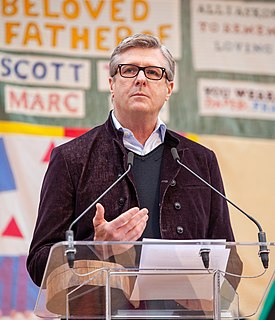A Quote by Sheila Heen
The fastest way to change the feedback culture in an organization is for the leaders to become better receivers.
Related Quotes
Leaders cannot work in a vacuum. They may take on larger, seemingly more important roles in an organization, but this does not exclude them from asking for and using feedback. In fact, a leader arguably needs feedback more so than anyone else. It's what helps a leader respond appropriately to events in pursuit of successful outcomes.
I'm not sure leaders listen enough, especially to their people. And I've always thought in everything I've tried to do in my life, in the jobs I've had, is that if we can turn our transmitters off and our receivers on more often, we're better leaders and we know more of what is going on and therefore we can lead more effectively.
"Leadership" is a big topic today. We know that the world - nations and communities in addition to companies - needs more and better leaders. So I wanted to explore how leaders make a difference, how they can shift a negative cycle, turn around a losing organization, propel a team to victory when conditions aren't perfect. I saw that what leaders do is build confidence in advance of victory. Then the confidence they produce makes the hope of success turn into the reality of success, because people behave differently when they are surrounded by a culture of confidence.
Leaders who understand the importance of the intangible elements contributing to workplace culture become sensitive to what makes their organization truly special. That is how they define core values and beliefs that are unique, simple, leader-led, repetitive, and embedded - transforming themselves from good to exceptional.
When all actions are used for feedback, the consequence of making mistakes will be a corrective and appropriate response, because everything everybody does matters. ... The more selective you are in the feedback you accept, the more insane your reasoning will become as you will necessarily reject corrective feedback that would have led to better reasoning.
Leaders are active instead of reactive, shaping ideas instead of responding to them. Leaders adopt a personal and active attitude toward goals. The influence a leader exerts in altering moods, evoking images and expectations, and in establishing specific desires and objectives determines the direction an organization takes. The net result of this influence is to change the way people think about what is desirable, possible, and necessary. In other words, leaders are visionaries and managers operate within those established visions.
When you advance a frontier and you do tomorrow what's never been done today, you have to innovate to make that happen. You become an innovation culture. When I grew up, every time I turned around it was, "Oh, here's the longest bridge or the deepest tunnel or the fastest airplane." And I originally thought that was just kind of like a pissing contest with men with too much testosterone. And then I realized that to make the tallest building you have to innovate. To make the fastest train you have to design the train in a way that it's never been designed before.
We become overly reliant on the strengths that got us where we are today. We also become isolated as we move up in the organization. Unless we have the benefit of assessment, and unless we invite feedback on our leadership, we continue to lean on strengths that can actually work against us, and fail to expand our leadership style in a way that makes us more effective.



































